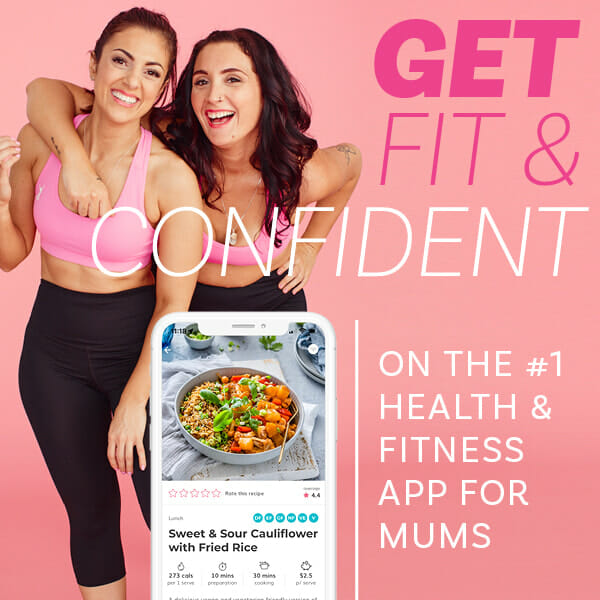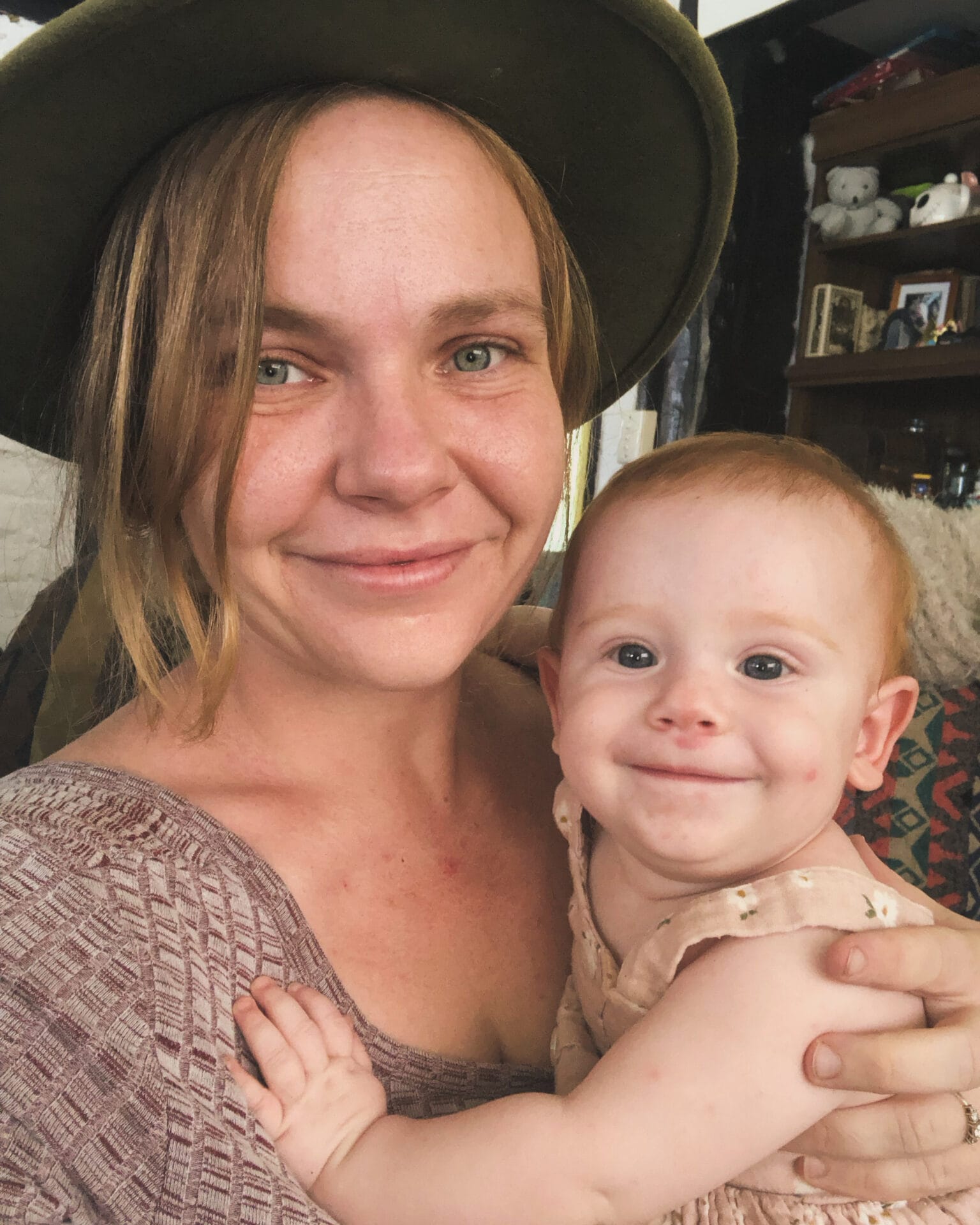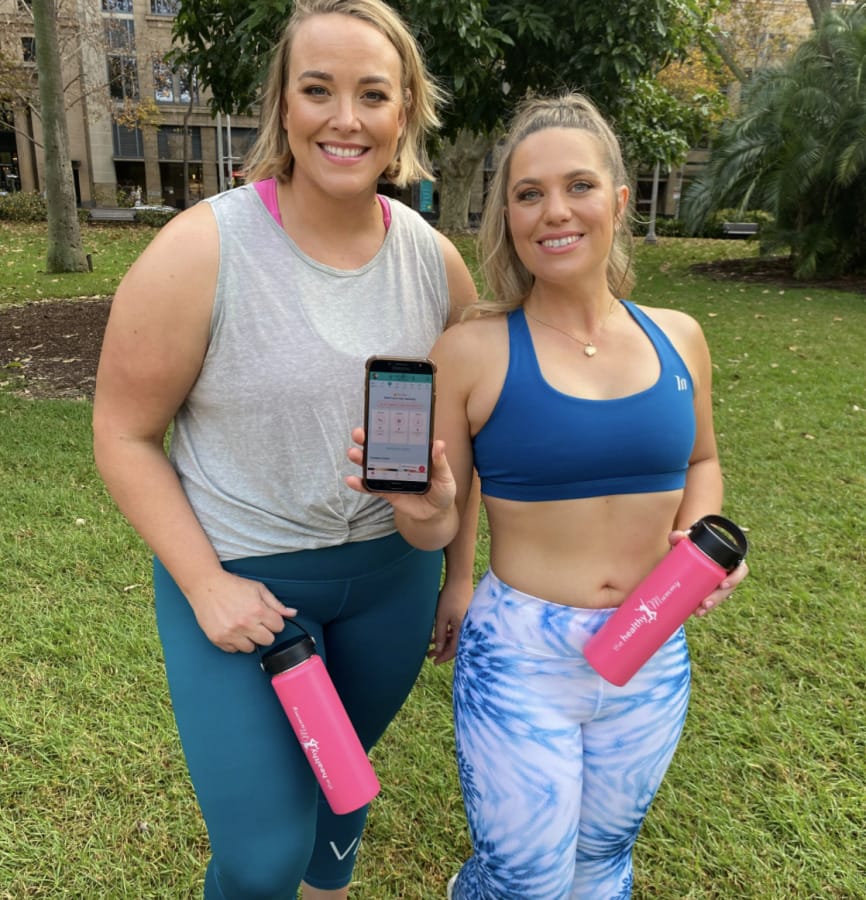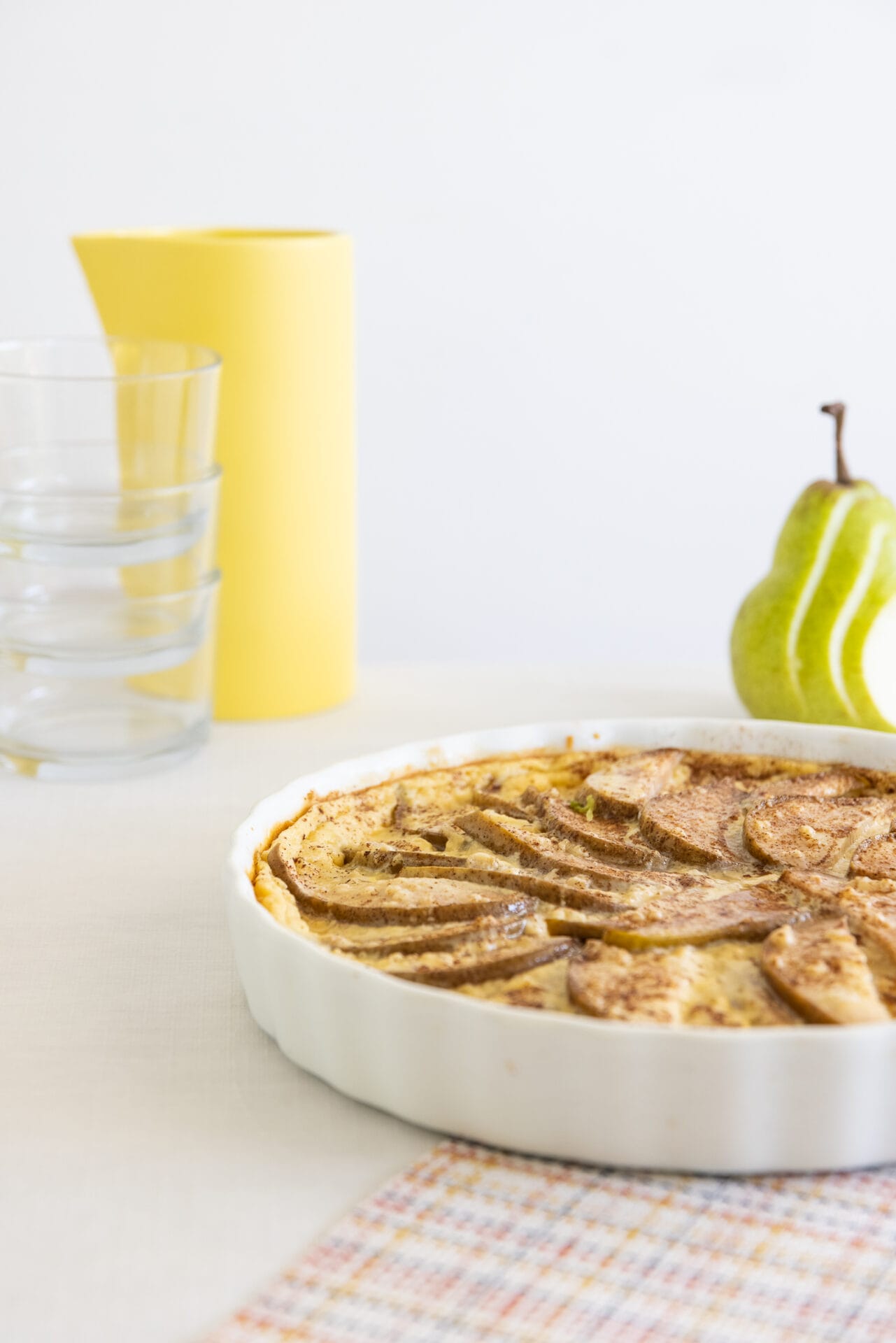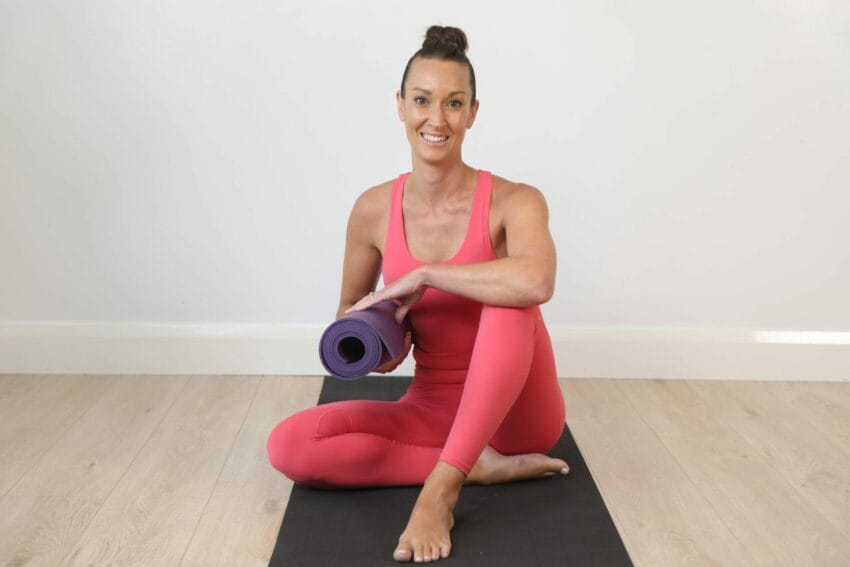Build muscle with our Build Exercise Program
Focus on building muscles with our Build Exercise Program, which is available on the 28 Day Weight Loss Challenge.
You can focus on building muscles with our Build exercise program, which is available in the The Healthy Mummy App.
If you’re keen to try out this workout program, it’s likely you have already achieved a great balance of exercise in your weekly routine, with a shift of focus to building lean muscle mass.
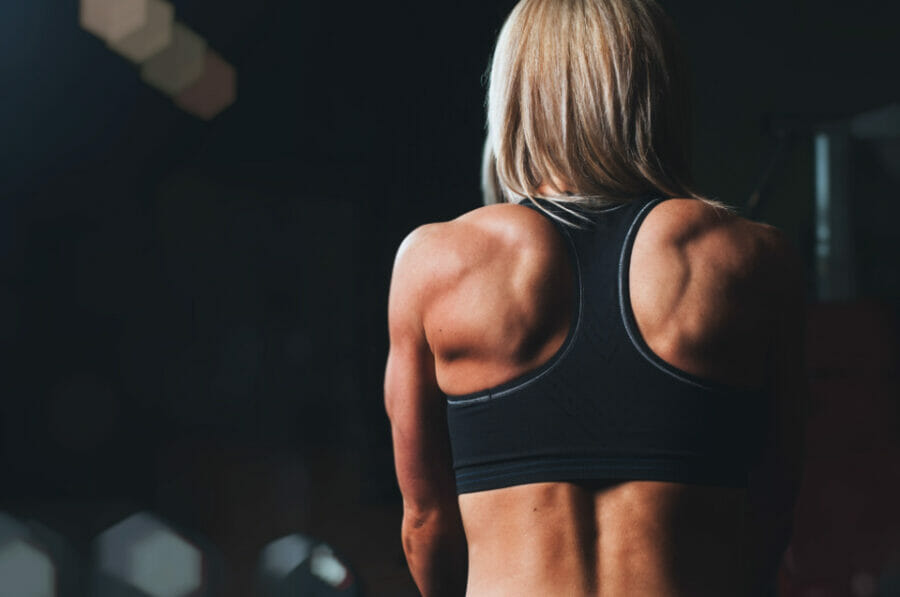
Four days a week, a workout will be selected for you. The build program and rest days have been designed to ensure sufficient rest in between workouts, in turn, ensuring you will be rested and replenished to complete your next workout session.
Build and maintain muscle with this full service program
Our trainers will help guide you through the workouts
What’s more, there are videos that are fully guided by our fabulous fitness trainers, Nathalia Melo and Laura Greenwood, to ensure your technique is correct and the routines are completed safely.
These videos include a warm-up, workout routine and a cool down and require resistance bands, a resistance band with handles, dumbbells, kettlebells and barbells with weights.
If you do not have a barbell or kettlebell, most exercises can be performed using dumbbells instead. This program focuses on building lean muscle mass and increasing stamina and strength.
What to expect from the Build Exercise Program on The Healthy Mummy app
A weekly meal plan and a 28 day exercise program focusing on strength and building muscle. These meal plans are higher calorie and high protein to support muscle growth and performance when training.
We recommend all mums eat to their individual calorie needs. You can check your daily calorie requirements in App by using our BMR Calculator.
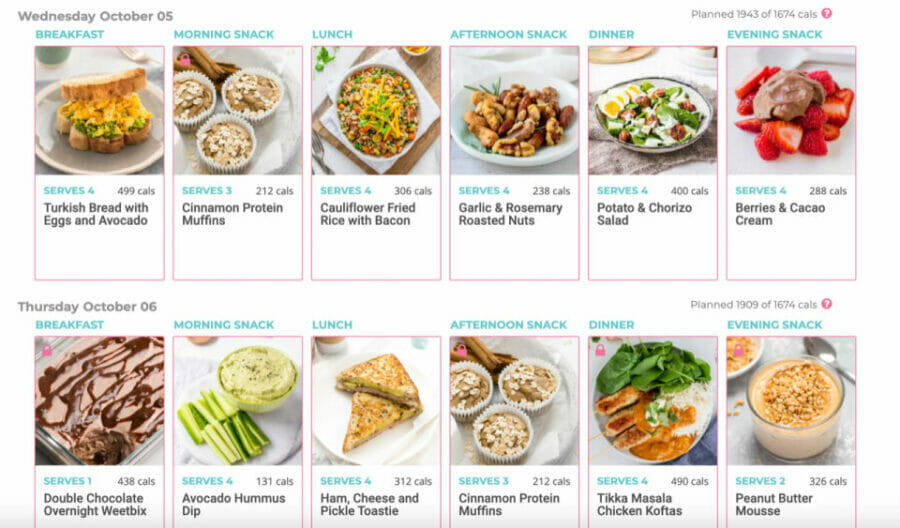
Sneak peek of some of the AMAZING recipes:
- Tikka Masala Chicken Koftas
- Peanut Butter Mousse
- Banoffee Breakfast Bowl
- Cinnamon Protein Muffins
- Energy Packed Frittata
- Biscoff and Strawberry Protein Pancakes
Why opt for The Healthy Mummy’s Build Exercise Program?
Being physically active does not only strengthen your bones and muscles. It plays a vital role in brain health, managing weight and reducing your risk of disease onset.
Achieving health goals is extremely empowering. You can feel the benefits physically and mentally, with the bonus of having ongoing health benefits for longevity.
Strength training may enhance your quality of life and improve your ability to do everyday activities.
What’s more, increasing your physical health helps to protect your joints from injury, can contribute to better balance and may reduce your risk of falls and fractures in later life.
Muscle is harder to build as we age
Muscle, unfortunately, is harder to build and maintain as we age (sigh). In fact, most of us start losing muscle around the age of 30.
Physically inactive women are at particular risk and can experience anywhere from a 3 to 8% loss of lean muscle mass every decade after that.
The correlation towards muscle loss is linked between ageing and loss of oestrogen (a hormone that helps build muscle). Changes in nerve and blood cells and how the body converts proteins into muscle tissue are also factors that can change as we age.
There are ways to build muscle with how you move your body and nourish it
Muscle loss does not have to be inevitable (phew)! Building muscle and gaining strength requires sufficient and consistent nutrition and fitness.
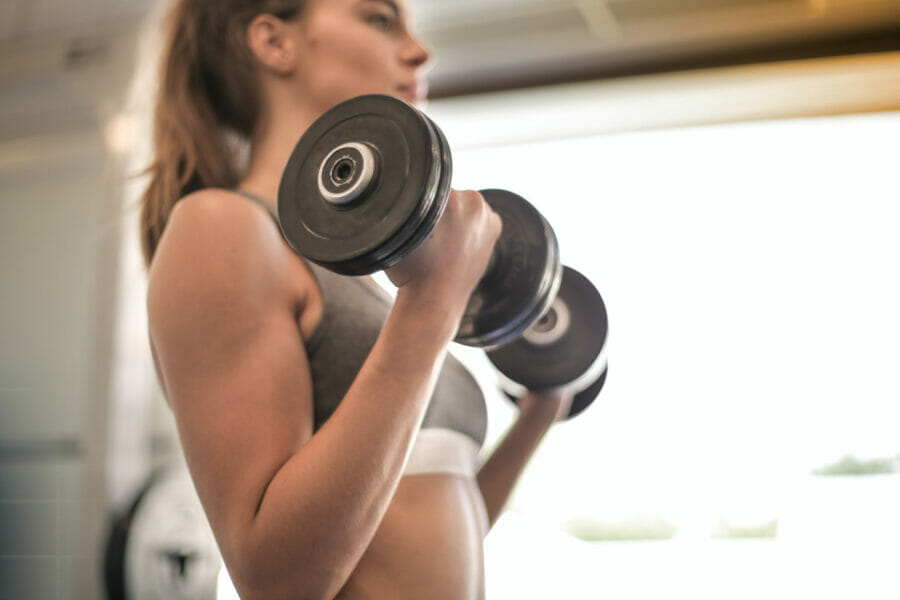
No matter what your goals are, both what you eat and your activity level can be adjusted to help achieve those milestones.
Building muscle requires strategic shifts in both how you move your body and how you nourish it.
How macronutrients can help
Let’s now discuss the role of macronutrients, how they assist our bodies in building muscle, and how calories are needed to fuel your body. Macronutrients include protein, carbohydrates and fat, and they all play a major role in building muscle.
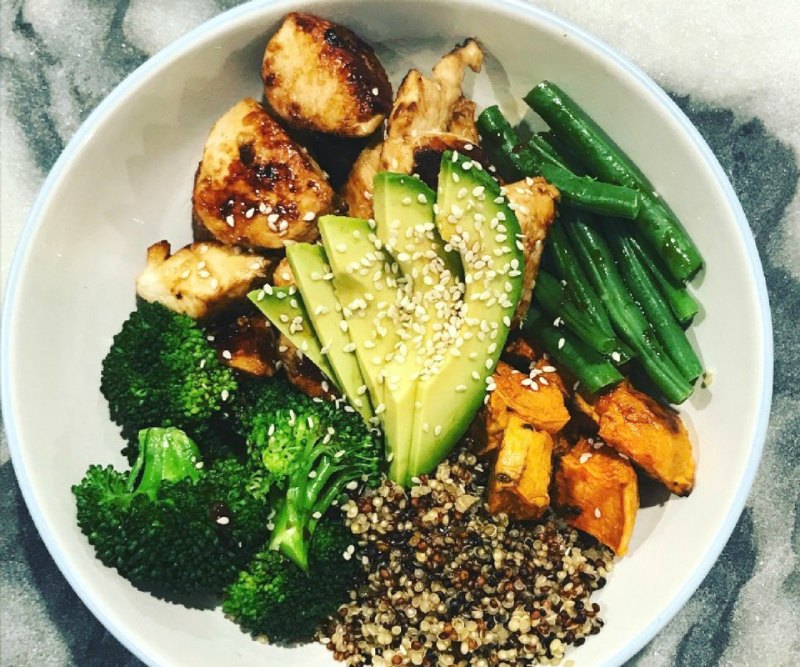
Dietary protein is the most important macronutrient for building muscle and strength. It is needed to maintain the structure of cells, hair, bones and connective tissue, providing enzymes that digest food, antibodies that keep your immune system functioning and everyday energy.
Protein molecules are made up of smaller components called amino acids. The body can make some amino acids, and others are needed via your diet (essential amino acids).
Nine essential amino acids
There are nine essential amino acids in total, some of which include leucine, methionine, and tryptophan.
Leucine stimulates protein synthesis (building of new muscle), tissue regulation and prevents the body from using existing muscles as fuel during workouts.
Proteins are primarily found in animal products and can also be found in smaller quantities in plant-based ingredients.
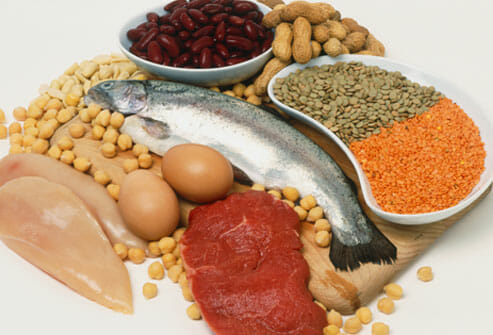
These can include:
- Eggs
- Fish and seafood
- Skinless white poultry
- Lean beef
- Reduced fat dairy and alternatives
- Beans and legumes
- Tofu
How much protein do you need to eat to help build muscle?
The daily recommended intake of protein for women is 0.75g/kg per day. To increase muscle mass in conjunction with regular exercise, it is recommended that you eat between 1.2-1.7g of protein per kg of body weight per day.
Generally, it’s a good idea to have a good mix of protein and carbohydrates a couple of hours before exercise so that you have the energy to train.
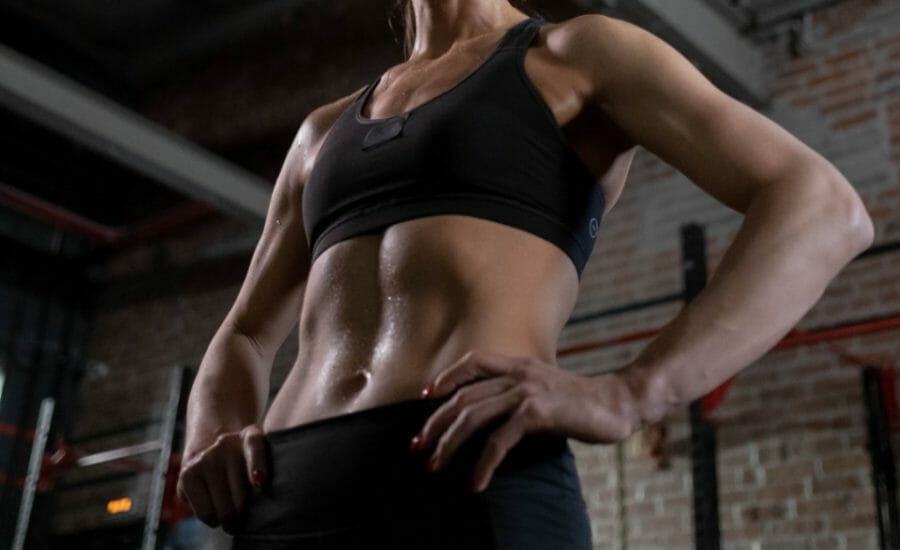
After your workout, many experts suggest consuming protein within a certain window of time.
A good rule of thumb is to consume between 0.4 and 0.5 grams of protein per kilogram of body weight within a couple of hours of a training session.
How carbs can help fuel your body and build muscles
Carbohydrates are another important group of foods for fuelling your muscles as they are partially converted to glycogen, which is a form of energy stored in muscles.
The primary role of dietary carbohydrates is the provision of energy to cells, particularly the brain which requires glucose for its metabolism.
Without enough complex carbohydrates in your diet, you’ll have a hard time getting the most out of your resistance training sessions.
Why you need complex carbs in your diet
Remember, the number of carbohydrates you need to promote muscle growth can vary greatly from one person to the next.
Specifically, fuelling up with carbohydrates before, during (if longer sessions) and after an intense exercise session can quickly replenish energy stores and promote even more muscle-building potential.
It is also recommended that you limit your intake of simple carbohydrates, especially if your goal is to also reduce body fat.
Sugary drinks, confectionery and most sweets are examples of simple carbohydrates.
By focusing on good quality carbohydrates that provide dietary fibre and sustain the glycogen stores needed for you to be able to exercise longer and more effectively.
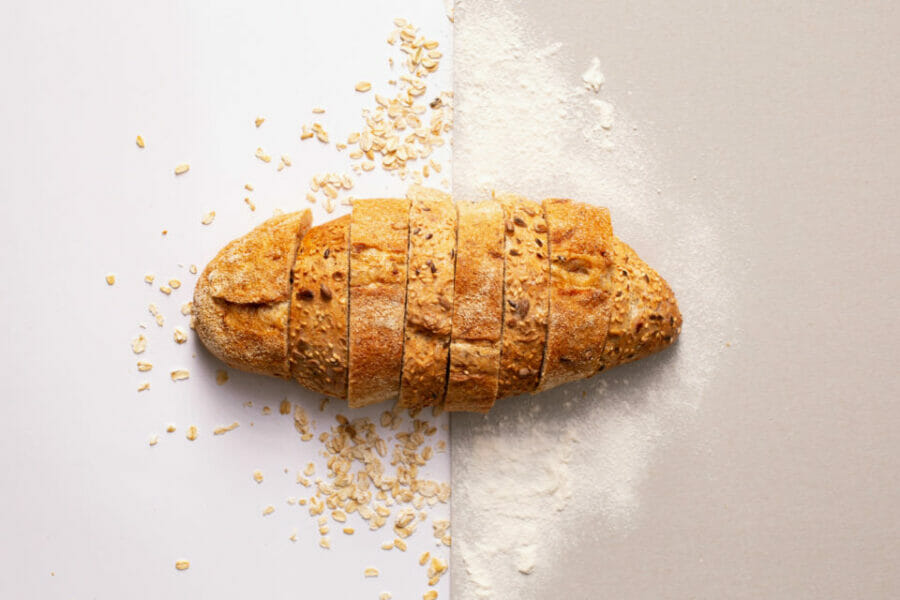
Good quality carbs can include:
- Whole grain bread, cereals, pasta, rice
- Buckwheat
- Legumes
- Quinoa
- Root vegetables
- Starchy vegetables
- Reduced fat dairy sources
- Fruit
The accepted carbohydrate distribution range for adults is 45 – 65% of dietary energy intake. An active woman requires an average 4 – 6 cupped handfuls of carbohydrates per day.
If you are finding that you are not achieving the muscle growth that you want, try adding 1-2 additional cupped handfuls per day if necessary.
Further research indicates that consuming a carbohydrate source straight after your exercise is helpful in replenishing glycogen stores.
This ensures that the muscle tissue worked has the energy it needs to recover and repair.
For longer exercise sessions, it is recommended you consume 1.2 – 1.5g of carbohydrate per kilogram of body weight per hour to achieve muscle gain.
The role fats play in helping to build muscle
While dietary fats may not play a huge role in building muscle, they are definitely important for maintaining hormonal function and a healthy immune system.
Following a calorie-restricted diet can impact your muscle growth, especially those who are increasing their exercise intensity.
Fats, especially essential fatty acids, play an equally important part in muscle development. They are linked to muscle preservation, fat burning, and hormone function.
In fact, help transport nutrients in and out of our cells and deliver amino acids to muscle tissue.
Your body relies on fat to supply energy to muscles during some types of activity. How much fat you need can vary.
As a general guideline, fat should make up 20 to 35% of your total calories. For overall health and muscle strength, focus on sources of heart-healthy fats.

Healthy fats include:
- Olive oil
- Avocado
- Nuts and seeds (chia and hemp)
- Fatty fish (salmon, mackerel, herring, sardines)
- Whole eggs
If your mindset is focused on muscle growth, an occasional treat is not going to make or break your results. Reframe your way of thinking, and remember it’s what we do on a consistent basis that determines our overall body composition.
During your build journey, the aim is to increase the weight you are using as part of your exercise routine while reducing the repetitions you use.
Targeting fewer muscles can help maximise your results
Targeting fewer muscle groups during your session can also assist in maximising your results, as the duration of your workout is focused on a specific muscle group or groups.
These sessions are often broken up into “leg day,” “back and biceps day,” “chest & triceps day” or similar groupings, often tailored to the individual goal.

This training style, paired with sufficient nutrition and rest time between workouts, ensures muscle recovery, optimising your training and results.
Nutrition for a “build” style of training should generally reflect maintenance or a surplus amount of calories to ensure adequate fuel for training, especially when increasing weight volume, as well as muscle repair during rest and recovery.
Safety when doing the Build Program
As always, before starting any new form of exercise, be sure to get the all-clear from your medical practitioner.
Be sure to follow the instructions from Nathalia Melo and Laura Greenwood, our fitness trainers, as they’ll advise you of the correct positions and techniques.
If you are new to these types of workouts, start things slowly.
At any stage during the workouts, if you feel pain in your back or joints, please pause and rest, choose a lower impact option provided, or just stretch until the next exercise.
Ensure you have experience in lifting weights before performing these advanced-level workouts. Always start light. You can increase weights as your fitness and strength increase.

